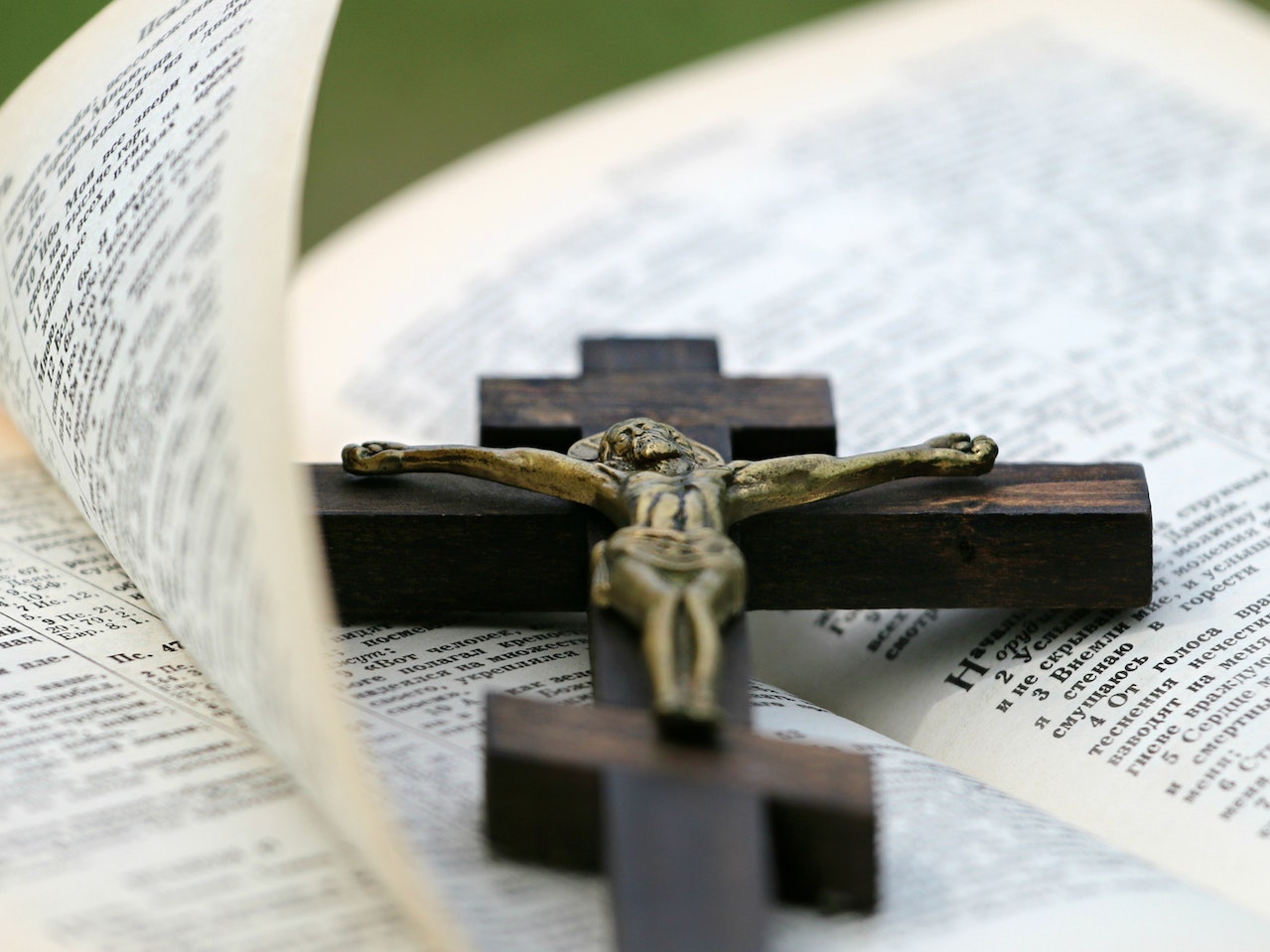Orthodox Christians adhere to a rich tradition of prayer, considering it an essential part of their spiritual life. The frequency of prayer in Orthodox practice varies, but it generally involves daily prayer, both individually and communally.
Table of Contents
The Importance of Regular Prayer in Orthodox Christianity
Orthodox Christianity places a strong emphasis on prayer, considering it an essential part of the believer’s spiritual journey. Prayer is seen as a way to connect with God, seek His guidance, and find solace in times of trouble. But how often should Orthodox Christians pray? Is there a specific frequency or schedule that one should adhere to? Let’s explore the importance of regular prayer in Orthodox Christianity.
First and foremost, it’s important to understand that prayer is not just a religious obligation for Orthodox Christians. It is a way of life, a constant conversation with God. Prayer is seen as a means to cultivate a personal relationship with the divine, to grow closer to God and seek His will in all aspects of life. It is not something to be done out of duty or obligation, but out of love and devotion.
In Orthodox Christianity, the ideal is to pray without ceasing, to have a continuous awareness of God’s presence throughout the day. This doesn’t mean that one must be engaged in formal prayers every single moment, but rather to maintain a spirit of prayerfulness in all activities. This can be achieved through short, spontaneous prayers, known as “arrow prayers,” which can be offered up at any time and in any place.
However, in addition to these spontaneous prayers, Orthodox Christians are encouraged to set aside specific times for formal prayer. The most common form of formal prayer in Orthodoxy is the Daily Office, which consists of morning and evening prayers. These prayers typically include psalms, hymns, and readings from the Scriptures. The Daily Office serves as a framework for the believer’s day, bookending it with prayer and setting a rhythm of devotion.
Apart from the Daily Office, Orthodox Christians are also encouraged to pray before meals, before and after sleep, and before and after any significant activity or event. These prayers serve as reminders of God’s presence and as expressions of gratitude for His blessings. They help to sanctify the ordinary moments of life and infuse them with a sense of the sacred.
In addition to these regular prayers, Orthodox Christians are also encouraged to participate in the liturgical life of the Church. The Divine Liturgy, which is the central act of worship in Orthodoxy, is celebrated every Sunday and on major feast days. Attending the Divine Liturgy is not only an act of communal worship but also an opportunity for personal prayer and spiritual nourishment.
While there is no set number of times one should pray each day, the goal is to cultivate a regular and consistent prayer life. It is not about quantity but about quality. It is better to offer a few heartfelt prayers with attention and devotion than to rush through a long list of prayers without true engagement.
Ultimately, the frequency of prayer will vary from person to person, depending on individual circumstances and spiritual needs. Some may find it helpful to set aside specific times for prayer each day, while others may prefer to integrate prayer into their daily activities. The key is to find a rhythm of prayer that works for you and to approach it with sincerity and love.
In conclusion, regular prayer is of utmost importance in Orthodox Christianity. It is a means to connect with God, seek His guidance, and find solace in times of trouble. While there is no set number of times one should pray each day, the goal is to cultivate a regular and consistent prayer life. Whether through formal prayers, spontaneous prayers, or participation in the liturgical life of the Church, Orthodox Christians are encouraged to make prayer a central part of their spiritual journey.
Understanding the Frequency of Prayer in Orthodox Tradition

How often should Orthodox pray? This is a question that many people have when they first encounter the Orthodox tradition. Prayer is a central aspect of Orthodox spirituality, and it is believed to be a way of communing with God and seeking His guidance and blessings. In this article, we will explore the frequency of prayer in the Orthodox tradition and shed light on how often Orthodox Christians are encouraged to pray.
In the Orthodox tradition, prayer is not seen as a mere obligation or a ritualistic practice. It is a way of life, a constant conversation with God. Orthodox Christians are encouraged to pray throughout the day, not just during designated times or in specific locations. This constant communion with God helps to cultivate a deep and personal relationship with Him.
One of the key aspects of Orthodox prayer is the use of the Jesus Prayer. This short prayer, “Lord Jesus Christ, Son of God, have mercy on me, a sinner,” is repeated continuously as a way of focusing the mind and heart on God. Many Orthodox Christians incorporate the Jesus Prayer into their daily lives, repeating it silently or aloud as they go about their daily activities. This constant repetition helps to keep God at the forefront of their minds and hearts.
In addition to the Jesus Prayer, Orthodox Christians are also encouraged to set aside specific times for formal prayer. The most important of these times is the morning and evening prayers. These prayers are typically longer and more structured, consisting of psalms, hymns, and prayers of thanksgiving and supplication. They serve as a way of beginning and ending the day with God, seeking His guidance and protection.
Apart from the morning and evening prayers, Orthodox Christians are also encouraged to pray before meals, before and after important events or decisions, and whenever they feel the need for guidance or comfort. This constant turning to God in prayer helps to foster a sense of dependence on Him and a recognition of His presence in every aspect of life.
It is important to note that the frequency of prayer in the Orthodox tradition is not meant to be burdensome or legalistic. Rather, it is a way of nurturing a deep and personal relationship with God. Orthodox Christians are encouraged to pray as often as they feel the need to, without any set rules or regulations. The goal is not to fulfill a quota of prayers, but to cultivate a genuine and heartfelt connection with God.
In conclusion, the frequency of prayer in the Orthodox tradition is a deeply personal and individual matter. Orthodox Christians are encouraged to pray throughout the day, incorporating the Jesus Prayer into their daily lives. They are also encouraged to set aside specific times for formal prayer, such as morning and evening prayers. However, the goal is not to adhere to a rigid schedule or fulfill a quota of prayers, but to cultivate a constant conversation with God and seek His guidance and blessings in every aspect of life. So, how often should Orthodox pray? As often as they feel the need to, for prayer is the lifeline that connects them to God.
Finding a Personal Prayer Routine in Orthodox Practice
Orthodox Christianity places a strong emphasis on prayer as a means of connecting with God and deepening one’s spiritual life. But how often should one pray? Is there a specific routine that Orthodox believers should follow? The answer, it seems, is both simple and complex.
In Orthodox practice, there is no one-size-fits-all answer to the question of how often one should pray. Instead, finding a personal prayer routine is encouraged, allowing individuals to develop a unique relationship with God. This flexibility is one of the beautiful aspects of Orthodox spirituality, as it recognizes that each person’s journey is different.
That being said, there are some general guidelines that can help guide Orthodox believers in establishing a regular prayer routine. The first and most important principle is consistency. Regular prayer is essential for spiritual growth, and finding a set time each day to dedicate to prayer can be immensely beneficial.
Many Orthodox Christians find it helpful to begin and end their day with prayer. Starting the day with prayer sets a positive tone and invites God’s presence into the day ahead. Similarly, ending the day with prayer allows for reflection and gratitude, as well as seeking forgiveness for any shortcomings.
In addition to morning and evening prayers, many Orthodox believers also incorporate prayer into their meals. Offering a brief prayer of thanksgiving before eating is a simple yet powerful way to acknowledge God’s provision and express gratitude for the nourishment received.
Beyond these foundational prayer times, Orthodox Christians are encouraged to pray throughout the day. This can take the form of short, spontaneous prayers known as “arrow prayers.” These brief moments of connection with God can be offered in times of joy, sorrow, or simply during the course of daily activities.
Another important aspect of Orthodox prayer is the use of the Jesus Prayer. This ancient prayer, which consists of the words “Lord Jesus Christ, Son of God, have mercy on me, a sinner,” is repeated continuously as a way of focusing the mind and heart on God’s presence. Many Orthodox believers find the Jesus Prayer to be a powerful tool for cultivating a deeper prayer life.
While these guidelines provide a helpful framework, it’s important to remember that prayer is ultimately a personal and intimate experience. Each person’s prayer routine will look different, and it’s essential to find what works best for you. Some individuals may find comfort in following a set prayer rule, while others may prefer a more spontaneous approach.
The key is to approach prayer with sincerity and an open heart. God desires a relationship with each of us, and prayer is the means by which we can nurture that relationship. Whether it’s through formal prayers, spontaneous conversations, or moments of silence, the important thing is to make prayer a regular part of our lives.
In conclusion, there is no one-size-fits-all answer to the question of how often Orthodox Christians should pray. Instead, finding a personal prayer routine is encouraged, allowing individuals to develop a unique relationship with God. Consistency, incorporating prayer into daily activities, and utilizing tools such as the Jesus Prayer can all be helpful in establishing a regular prayer practice. Ultimately, the most important thing is to approach prayer with sincerity and an open heart, allowing God to guide and deepen our spiritual lives.
Exploring Different Approaches to Prayer Frequency in Orthodoxy
Orthodox Christianity places a strong emphasis on prayer as a means of connecting with God and seeking His guidance and blessings. But how often should Orthodox believers pray? This question has been a topic of discussion and debate among Orthodox theologians and practitioners for centuries. In this article, we will explore different approaches to prayer frequency in Orthodoxy, shedding light on the diverse perspectives within this rich tradition.
One approach to prayer frequency in Orthodoxy is the idea of praying constantly. This concept, known as the “Jesus Prayer,” involves repeating the phrase “Lord Jesus Christ, Son of God, have mercy on me, a sinner” throughout the day. The goal is to maintain a constant state of prayer, offering up this simple yet powerful prayer as a way of staying connected to God in all circumstances. This approach emphasizes the importance of cultivating a prayerful mindset and seeking God’s presence in every moment.
Another approach to prayer frequency in Orthodoxy is the practice of set prayer times throughout the day. This approach is often associated with monasticism, where monks and nuns follow a strict schedule of prayer known as the “Divine Office” or “Daily Office.” This schedule typically includes prayers at specific times, such as morning, noon, evening, and night. By adhering to this structured prayer routine, Orthodox believers aim to sanctify their entire day and offer their time and energy to God.
However, it is important to note that not all Orthodox Christians are able to maintain such a rigorous prayer schedule. Many Orthodox believers lead busy lives, juggling work, family, and other responsibilities. For them, finding time for extended periods of prayer throughout the day may be challenging. In such cases, a more flexible approach to prayer frequency is often adopted.
In this more flexible approach, Orthodox believers strive to incorporate prayer into their daily routines in whatever way they can. This may involve setting aside a specific time each day for prayer, such as in the morning or before bed. It may also involve finding moments throughout the day to offer up quick prayers of gratitude, supplication, or praise. The key is to make prayer a priority and to seek God’s presence in the midst of daily life.
Ultimately, the frequency of prayer in Orthodoxy is a deeply personal matter. While there are general guidelines and traditions within the Orthodox Church, each individual believer is encouraged to find a prayer routine that works best for them. Some may find solace in the structure of set prayer times, while others may prefer a more spontaneous and flexible approach. What matters most is the sincere desire to connect with God and seek His will in all things.
In conclusion, the question of how often Orthodox believers should pray is a complex one with no one-size-fits-all answer. Different approaches to prayer frequency exist within Orthodoxy, ranging from the constant repetition of the Jesus Prayer to the structured prayer times of the Divine Office. However, it is important to remember that prayer is ultimately a personal and intimate conversation with God. Whether one prays constantly, follows a set schedule, or finds moments throughout the day to connect with God, what matters most is the genuine desire to seek His presence and guidance in all aspects of life.
Conclusion
In conclusion, Orthodox Christians are encouraged to pray daily, with the expectation of praying multiple times throughout the day. The frequency of prayer is seen as a way to maintain a strong spiritual connection with God and to seek His guidance and blessings in all aspects of life.
For licensing reasons, we must provide the following notice: This content was created in part with the help of an AI.


